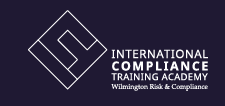The qualification is designed to give you actionable, practical knowledge so that you can implement key fraud management strategies in your firm.

According to the latest PwC Global Economic Crime and Fraud Survey, 47% of companies have experienced fraud in the past 24 months with a total reported loss of US$42bn. Kristin Rivera, PwC Global Forensics Leader, says “when it comes to preventing and tackling fraud, our research shows that a dollar invested now is worth twice as much when fraud hits.”
Corporate fraud is also on the rise. With our corporate fraud training, this course will help you identify and even prevent any incidents of fraud happening internally in your organisation.
The qualification is designed to give you actionable, practical knowledge so that you can implement key fraud management strategies in your firm. You will get to grips with global anti-fraud frameworks, the mind and motivations of a fraudster as well as gain an understanding of what the future holds in this space.
Learning Outcomes:
After completion of this programme, you will:
Recent years have seen numerous changes worldwide and Asia has been no different. Following on from the Financial Action Task Force (FATF) updates, we have seen major changes in the AML sector in the APAC region.
Changes to the money laundering guidelines have had a visible impact on business in APAC. Singapore has recently prosecuted individual cases for both money laundering and insider trading, in what is seen as an uptick in the frequency of cases of these types.
With ever-changing regulations and increasing focus on governance, conduct, sanctions, and financial crime; the challenges faced by compliance officers today are not restricted to within their institution but rather they are required to keep abreast of the trends and developments in the macro environment.
From the heightened expectations on ethics and governance to the international clampdown on corruption, tax evasion, and money laundering, the demand for skilled and qualified practitioners in governance, risk, compliance and financial crime, is clearly on the rise. The close scrutiny of regulation in the global financial system is here to stay.
© 2025 coursetakers.com All Rights Reserved. Terms and Conditions of use | Privacy Policy